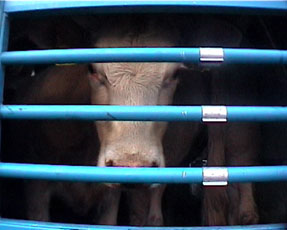Thanet pushes for end to live animal exports

A Kent council is supporting a move that animal welfare groups claim would effectively end livestock exports from the UK.
Thanet District Council passed a resolution calling on the government to press for an eight-hour limit on animal journeys within the European Union.
The council – which owns the Port of Ramsgate – opposes livestock exports, but says it is legally powerless to ban the trade at the port.
Instead, it hopes the introduction of an eight-hour limit on the transport of animals to slaughter or for fattening would render the livestock export trade uneconomic.
A motion calling on the government to press Brussels for an eight-hour journey limit was passed unanimously by Thanet councillors on Thursday (15 July).
The campaign group Compassion in World Farming said that the vote showed the strength of public feeling against livestock exports.
CIWF spokeswoman Michèle Danan said: “Thanet District Council is showing there is the political will to challenge long, arduous journeys for UK animals, too.
“We’re delighted a district council has stood up for its voters’ wishes and we see this as another step towards ending this inhumane trade.”
The welfare group has used the Freedom of Information Act to obtain details about the livestock export trade.
In one case, it said 134 unweaned calves had been transported from Cockermouth in Cumbria to Spain – a trip likely to take more than two days.
“Compassion believes that farm animals should be reared and slaughtered as close as possible to the farm where they are born,” said Ms Danan.
Livestock transportation companies involved in the export trade claim the animals are well treated.
In an earlier statement, Thanet commercial services manager Mark Seed said the council had resisted the use of Ramsgate for livestock exports for some time.
“We are exceptionally unhappy about this situation and about the potential impact that such trade could have on the port,” he said.
Previous court cases suggested legal action against livestock exports would involve a significant cost and be unlikely to succeed, said Mr Seed.
